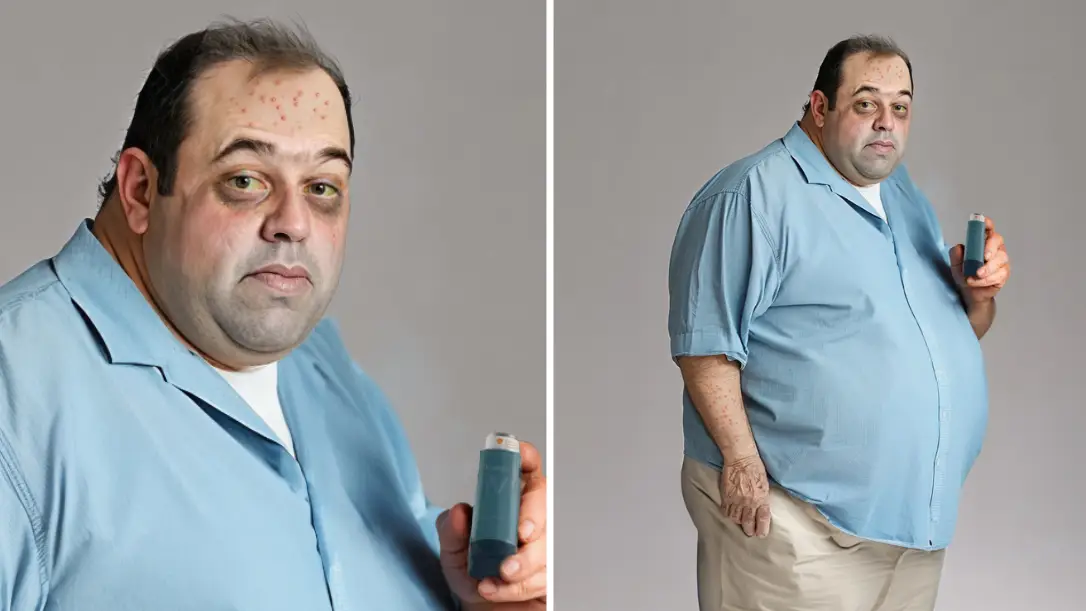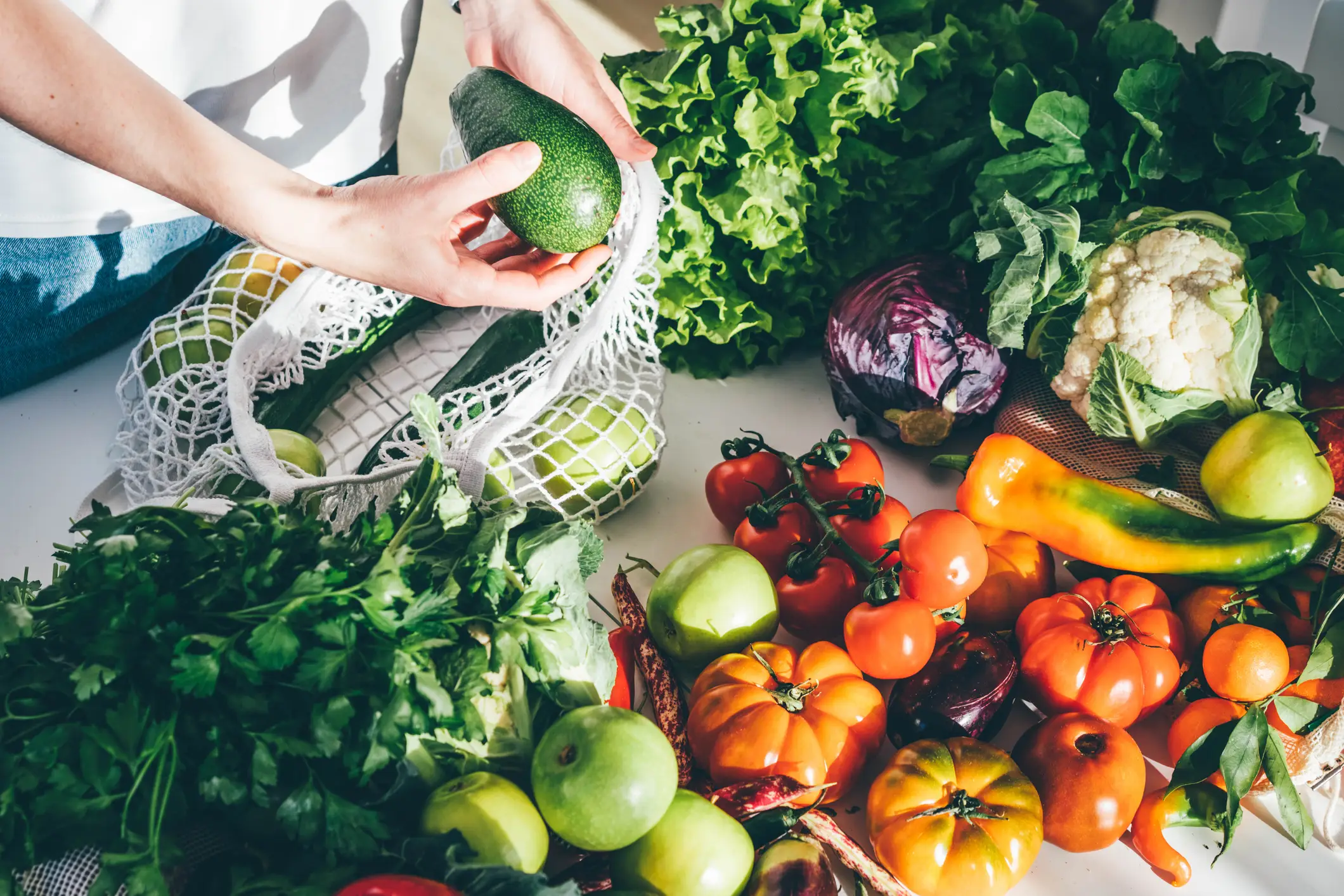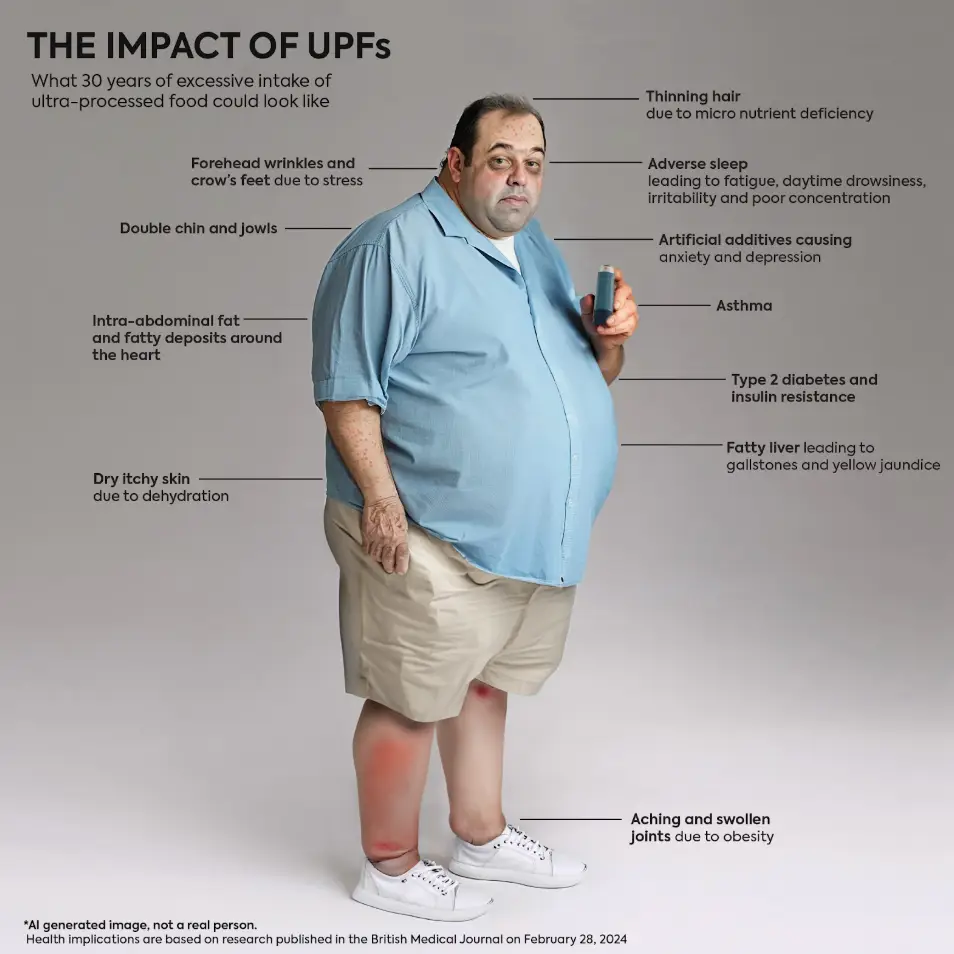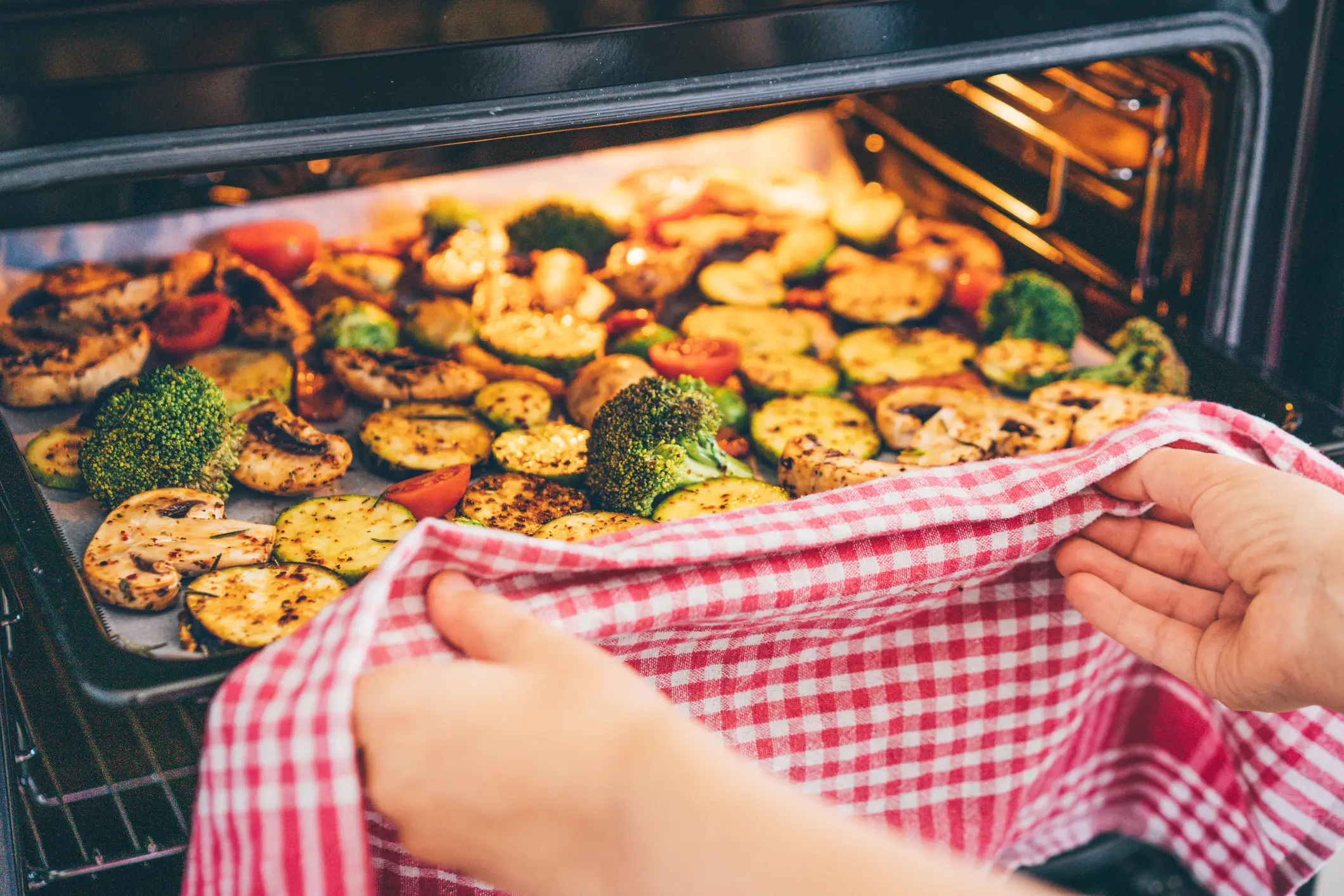
A rather concerning image shows what humans could look like in 30 years if a certain change isn't made.
Now, we all know how important it is to be healthy and lead an active lifestyle, but I'm pretty confident in saying that plenty of us will have thought at some point: "I'm too young to be worrying about my health!"
Sure, you can always start eating healthier and going for weekly runs as part of next year's new year resolution... but it turns out that we need to be prioritising our health at all times, no matter how old we are.

Advert
And to prove this, Gousto has commissioned the new Ultra Processed Plates report, which sheds a light on the long-term impacts of ultra processed foods (UPFs) and how it can make us look and feel in the next few decades.
Along with the expertise of Dr Hilary Jones MBE, the report aims to drive awareness of today's diets and their long-term impacts, 'helping shape the health of tomorrow'.
Informed by Dr Hilary’s medical expertise and AI technology, Gousto has developed 'Michael' to offer a rather concerning glimpse into humanity’s health 30 years from now.
'Michael' highlights the potential impact of excessive ultra processed foods consumption and a lack of a balanced diet full of fresh, nutrient-rich ingredients.
As you can see below, he's seen with thinning hair, wrinkles and intra-abdominal fat - and that's just on the outside, as on the inside he's battling asthma, anxiety, depression and Type 2 Diabetes.

He also illustrates how over-reliance on UPFs could lead to long-term issues like sleep deprivation and weight gain, resulting in aching and swollen joints, skin imperfections, and more.
While one may assume that UPFs are easily avoided, the newly commissioned research suggests otherwise.
Though more than three quarters (84%) of Brits are aware of UPFs and are concerned about the impact on their health, (65%) claim it’s still too difficult to avoid them. And one in two (53%) admit they are unsure whether they’re buying UPFs or not when food shopping or eating out.
The study also highlights that three-quarters (75%) claim convenience remains a key driver in making healthier food choices, with over a third (37%) citing a lack of time and lack of inspiration (24%) as their main barriers to cooking from home.

"Ultra-processed foods aren’t inherently harmful, but when they dominate our diets and replace fresh, nutrient-rich foods, they can increase the risk of long-term health issues like cardiovascular disease, metabolic disorders, and nutrient deficiencies," Dr Hilary Jones MBE explained.
"A balanced diet full of fresh, whole ingredients is essential for preventing chronic conditions and supporting overall health.
"Scratch cooking [preparing food from the beginning using fresh ingredients without preservatives or additives] is one of the most effective ways to minimise our ultra-processed foods intake and maintain a balanced diet."
Right now, the UK is grappling an obesity crisis and UPFs make up nearly 60% of the average diet, so it's more important than ever to be making a conscious effort to eat as fresh and healthy of a diet as possible, as well as staying active.
Topics: Food and Drink, Health, Technology